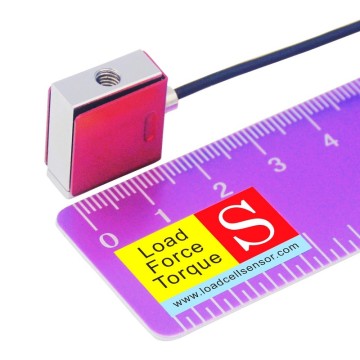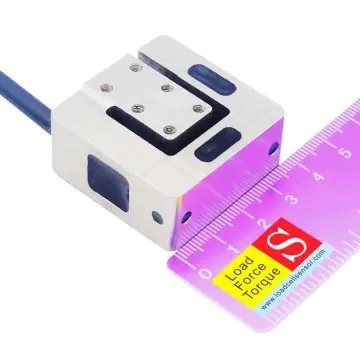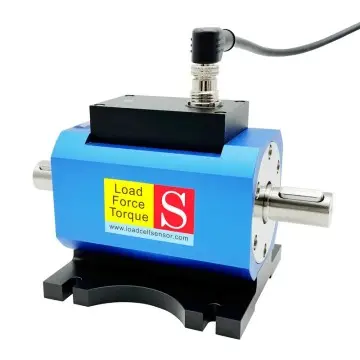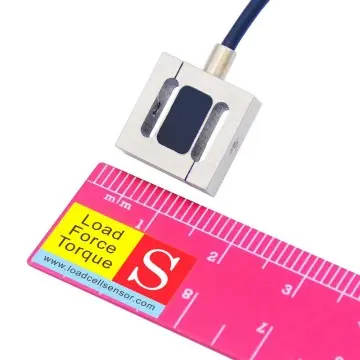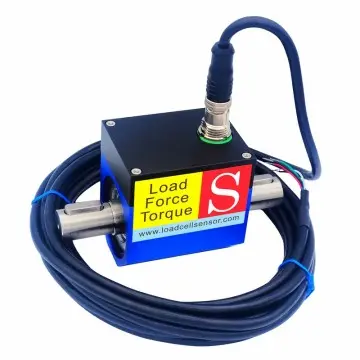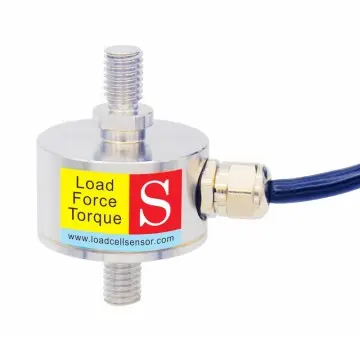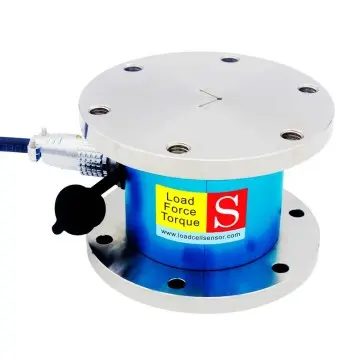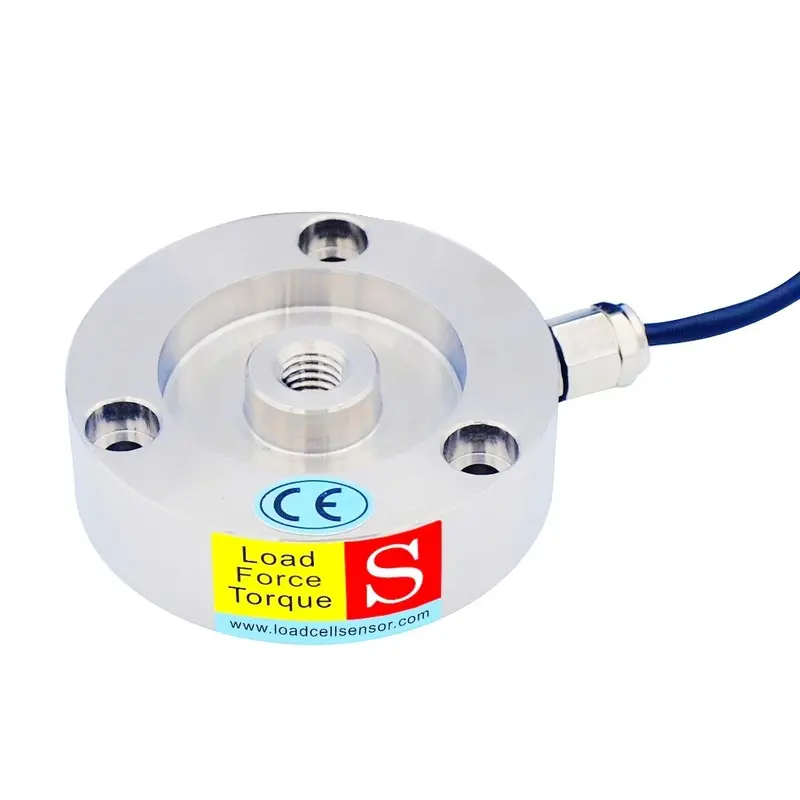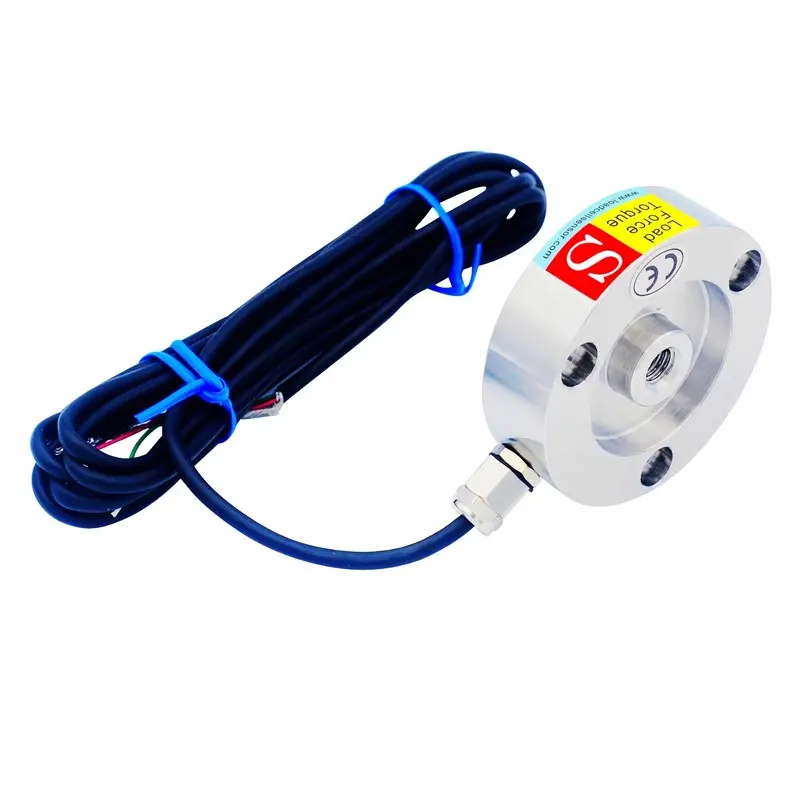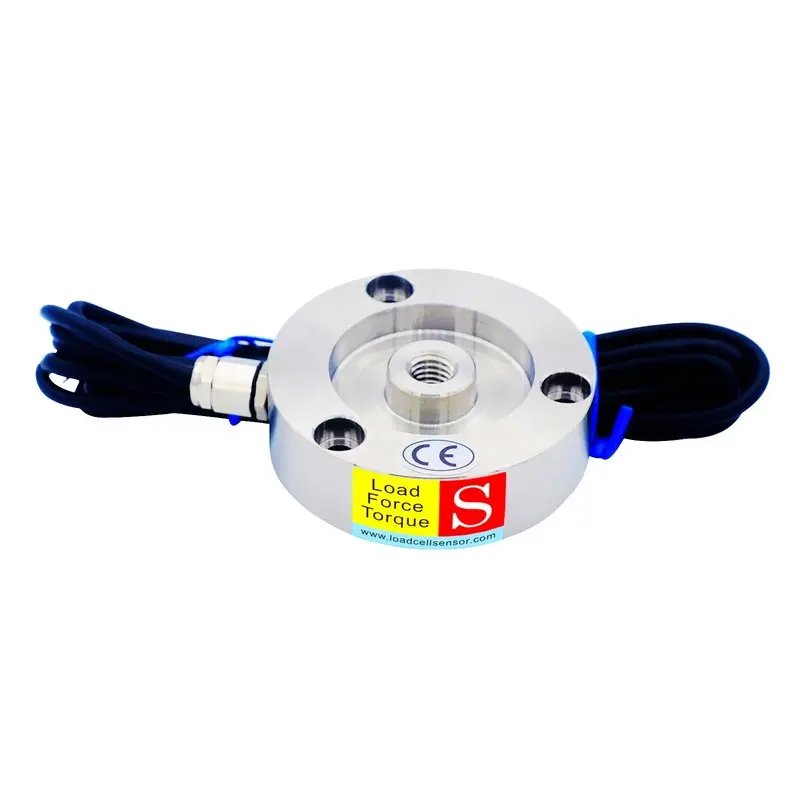 sales@loadcellsensor.com
sales@loadcellsensor.com
Low profile tension compression load cell 500N 1kN 2kN 3kN
The LCP02 Pancake Load Cell is a high-performance, low-profile force transducer engineered to deliver precision in both static and dynamic force measurement across tension (pull) and compression (push) applications. Constructed from robust stainless steel, its shear web design ensures exceptional durability, making it ideal for demanding environments such as industrial production floors, automotive test rigs, or outdoor research installations. The LCP02’s compact, pancake-shaped profile—paired with versatile mounting options—allows seamless integration into space-constrained systems without sacrificing accuracy or reliability.
The LCP02 features a streamlined design with three 4.5mm through-holes positioned around its periphery, enabling secure mounting to flat surfaces using M4 screws. At its center, an M8x1.25 threaded hole accommodates a variety of loading attachments, including load buttons, eye bolts, or custom fixtures, ensuring adaptability across diverse testing scenarios. This dual-mounting system simplifies installation in both permanent setups and temporary configurations, reducing downtime during system upgrades or calibration.
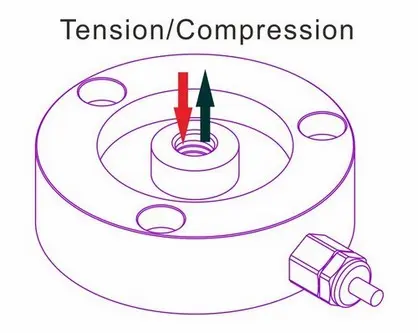
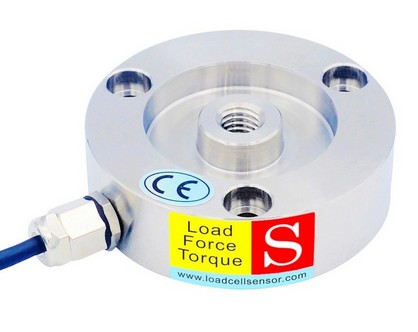
Available in four capacities—500N, 1kN, 2kN, and 3kN—the LCP02 shear web load cell caters to a broad range of force measurement needs. Its shear web structure, a hallmark of its design, minimizes off-axis loading errors while providing high stiffness for rapid response times. This ensures precise, repeatable measurements even in high-cycle applications such as robotic assembly line force feedback, material fatigue testing, or structural load monitoring. The sensor’s stainless steel construction not only resists corrosion and mechanical wear but also maintains stability across temperature fluctuations, critical for industries like aerospace or energy where environmental extremes are common.
The LCP02 low profile load cell excels in sectors requiring rigorous force analysis. In automotive engineering, it validates component durability during crash simulations or brake testing. Manufacturers use it for quality control in assembly processes, such as verifying bolt tension or press-fit integrity. Research institutions leverage its dynamic measurement capabilities for biomechanical studies or seismic load testing. Additionally, its low-profile form makes it ideal for embedded systems in collaborative robotics, where real-time force feedback enhances safety and precision.
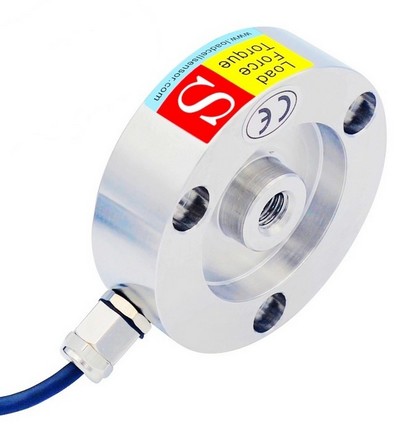
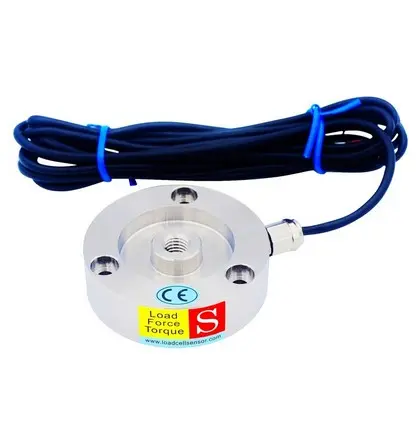
Drawing on decades of expertise, LCS offers tailored modifications to the LCP02 to meet specialized requirements. Customization options include alternative thread sizes (e.g., M10 or UNF), bespoke output signals (RS485, 0-5V, 4-20mA), or material upgrades (titanium for weight-sensitive applications). Protective coatings for harsh environments—such as marine-grade seals or high-temperature finishes—extend its usability in challenging conditions. OEM partnerships benefit from scalable production runs, ensuring cost-efficiency without compromising metrological integrity.
Combining ruggedness with precision, the LCP02 Pancake Load Cell bridges the gap between laboratory-grade accuracy and industrial practicality. Its adaptability across load ranges, environments, and industries positions it as a cornerstone tool for engineers striving to optimize performance, safety, and compliance. Whether deployed in cutting-edge automation, critical infrastructure monitoring, or R&D innovation, the LCP02 exemplifies how compact design and advanced engineering can coexist to solve complex measurement challenges.



